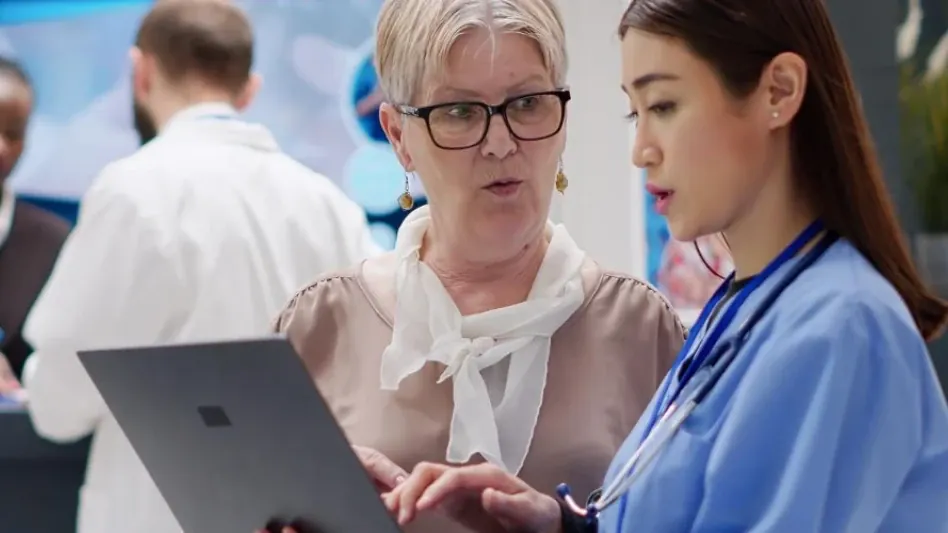The University of Liverpool has recently taken a significant step forward in enhancing its healthcare education infrastructure by unveiling state-of-the-art teaching facilities valued at over £1 million. These cutting-edge amenities are specifically designed to improve the clinical education experience for students involved in nursing, radiography, and physiotherapy. Named the Florence Nightingale and Rose Thompson Suites, the new learning environments pay tribute to two iconic figures in the field of healthcare, reiterating the University’s commitment to both innovative education and the recognition of historical contributions.
Innovation in Clinical Education
In an effort to elevate the quality of clinical training, the University of Liverpool has strategically prioritized the development of spaces that closely replicate real-life healthcare scenarios. This substantial investment is part of a broader initiative aimed at providing students with hands-on experience that accurately mirrors the complexities they will face in actual clinical settings. By integrating these advanced facilities into the curriculum, the University aims to prepare its students more effectively for their future professional roles.
The newly established suites are equipped with sophisticated features such as advanced training mannequins, an interactive digital anatomy table, and an X-ray room that accurately mimics a hospital environment. Additionally, a model flat has been incorporated to simulate home visits, thus offering students a wide array of experiential learning opportunities. These features are meticulously designed to help students sharpen their technical skills and patient interaction techniques within a controlled and supportive environment. By fostering a practical approach to learning, these facilities ensure students are well-prepared to handle the demands of their healthcare professions.
Honoring Historical Figures in Healthcare
Naming the new facilities after Florence Nightingale and Rose Thompson serves as a powerful gesture of recognition for their monumental contributions to the field of healthcare. Florence Nightingale, who is often regarded as the founder of modern nursing in the UK, has a historical connection to Liverpool. Her collaboration with philanthropist William Rathbone VI led to the establishment of the first district nursing service in Liverpool. This pioneering initiative laid the essential groundwork for professional nursing education and significantly advanced the field.
Rose Thompson, another pivotal figure, was a groundbreaking therapeutic radiographer and an esteemed educator at the University of Liverpool. Her extensive contributions to cancer services and her advocacy for Black and Minority Ethnic (BME) cancer communities earned her numerous awards and accolades. Thompson’s unwavering dedication to fostering an inclusive and diverse learning environment underscores the University’s commitment to these values. By honoring Thompson, the University acknowledges her pivotal role in shaping modern healthcare education and promoting inclusivity, thus setting a powerful example for future generations.
Advancing Experiential Learning
One of the cornerstones of the new healthcare teaching facilities is the emphasis on experiential learning. Dr. Rebecca Rylance-Graham, the Dean of the School of Allied Health Professions and Nursing, has highlighted the transformative potential of the new suites. By integrating cutting-edge technology and simulation tools, the University of Liverpool ensures that its students receive realistic and hands-on training that prepares them for the challenges they will face in their professional lives.
These advancements are designed to give students a competitive edge in their careers. The immersive learning environments enable them to practice and perfect critical skills, ranging from nursing techniques to radiographic imaging and beyond. Such practical experience is invaluable, as it helps students build confidence and competence, making them well-prepared to excel in their respective fields. The emphasis on experiential learning not only enhances the educational experience but also ensures that graduates are equipped with the practical skills needed to succeed in the ever-evolving healthcare landscape.
University’s Legacy and Commitment
The University of Liverpool’s School of Allied Health Professions and Nursing is an integral part of the larger Institute of Population Health. This affiliation underscores Liverpool’s rich tradition of public health innovation and reinforces the University’s ongoing commitment to enhancing local healthcare services. Through strategic partnerships with the NHS, the University continues to play a pivotal role in advancing healthcare education and improving community health outcomes.
By continuously investing in high-quality education infrastructure, the University of Liverpool not only maintains its esteemed position in global healthcare education but also ensures the continuity of its legacy of excellence. The new suites symbolize the University’s unwavering dedication to developing competent healthcare professionals who are well-equipped to tackle contemporary healthcare challenges. This ongoing investment in infrastructure reflects the University’s commitment to fostering excellence in healthcare education and training, thereby contributing to the overall betterment of public health.
Collaborative and Inclusive Education
One of the key themes highlighted by the new healthcare teaching facilities is the emphasis on collaborative and inclusive education. By reflecting on Rose Thompson’s significant contributions, the University aims to create more diverse and supportive learning environments. This shift towards inclusivity aligns with broader educational trends that recognize the importance of diverse perspectives in enriching the learning experience. The University of Liverpool’s focus on inclusivity and collaboration seeks to foster a more equitable and dynamic educational environment.
The Florence Nightingale and Rose Thompson Suites serve as a testament to this commitment, showcasing modern, inclusive teaching practices that cater to a diverse student body. By incorporating these values into its educational offerings, the University of Liverpool creates an environment where all students can thrive and excel. This inclusive approach not only enhances the quality of education but also prepares students to work effectively in diverse healthcare settings, promoting better patient outcomes and advancing the field of healthcare as a whole.
Simulation-Based Learning
A particularly noteworthy feature of the new suites is the emphasis on simulation-based learning. By leveraging advanced technology to create realistic scenarios, the facilities provide students with comprehensive training in a controlled setting. This approach allows students to practice procedures and patient interactions repeatedly, building confidence and competence without the real-world consequences of making mistakes. Simulation-based education is increasingly recognized for its effectiveness in teaching complex clinical skills and is a key component of the University of Liverpool’s innovative approach to healthcare education.
The ability to practice and refine skills in a simulated environment ensures that graduates are not only theoretically proficient but also practically skilled. This method of education equips students with the hands-on experience needed to excel in their respective fields, making them better prepared for the demands of their professions. The University’s investment in simulation-based learning underscores its commitment to providing the highest quality education and training for future healthcare professionals.
Future Prospects in Healthcare Education
The University of Liverpool has recently made a major advancement in its healthcare education infrastructure by unveiling high-tech teaching facilities worth over £1 million. These state-of-the-art spaces aim to enrich the clinical education of students specializing in nursing, radiography, and physiotherapy. The new suites, named in honor of Florence Nightingale and Rose Thompson, reflect the University’s dedication to pioneering educational methods and recognizing the substantial contributions of historical figures in healthcare.
The Florence Nightingale Suite and the Rose Thompson Suite stand as modern tributes to two women who have left indelible marks on the field of healthcare. Florence Nightingale, often hailed as the founder of modern nursing, revolutionized healthcare practices and set new standards for patient care during the 19th century. Rose Thompson, though lesser-known, made significant strides in advocating for enhanced healthcare services and nursing education.
By naming these suites after such influential figures, the University of Liverpool not only acknowledges the historical impact of these women but also signals its ongoing commitment to excellence and innovation in healthcare education. These new facilities are expected to significantly benefit students by providing them with an enriched, practical learning environment that closely mirrors real-world clinical settings. The investment underscores the institution’s drive to equip future healthcare professionals with the skills and knowledge necessary to excel in their respective fields.









